
Glimpses of last week: Despite good monsoon, farming for food grain falls; Vegetable oil imports increase
By Abin Daya The first round of returns filing for GST has happened, and businesses are slowly getting a hang of the processes, and are also understanding the tax better. Much work still needs to be done, and it will take at least two quarters, if not more before we can say that we have become comfortable with it, and it is business as usual again! In the meantime, though, despite a good monsoon, aggregate acreage under cultivation is falling, particularly for food-grains. While the bumper harvest of last year should provide some relief, we will need to do much more to meet our ever-growing demand. The kharif acreage is one of the topics that we deal with this week. Under the same ...

Kharif foodgrain production to surpass last year numbers: Agri Secretary
The Dollar Business Bureau Agriculture Secretary Shobhana K Pattanayak said on Saturday that the foodgrain production in the ongoing kharif season 2017-18 is expected to exceed last year's record output of 138.04 million tonnes on account of higher sowing area and good monsoon. Till now, more than 80% of the sowing of kharif crops such as pulses, paddy, cotton, oilseeds, jute and sugarcane, has been completed and the sowing will continue in some regions until next month, he told PTI. Crop area of around 19 lakh hectare across the country has been impacted by floods and farmers are expected to take up other crops in the season once the water goes down, Pattanayak said. He also expressed concerns about poor rainfall in ...
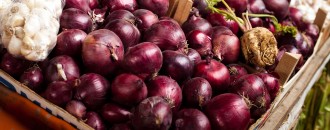
Centre to procure 2 lakh tonne onions from MP
The Dollar Business Bureau The Central government has decided to procure 2 lakh tonnes of onion from Madhya Pradesh, to provide relief to the farmers of the state from declining prices of the crop. The wholesale prices of onion have sharply declined to less than Rs.6 per kg in Madhya Pradesh as production of the crop was higher during late Kharif season of crop year 2016-17 (July-June). “We have approved procurement of 2 lakh tonnes of onions under the Market Intervention Scheme (MIS) from Madhya Pradesh,” a senior official from the Agriculture Ministry remarked. The procurement of onion will be conducted by the Madhya Pradesh State Cooperative Marketing Federation Ltd (MP-Markfed) at Rs.5,867/tonne for fair and average quality (FAQ) of the crop with overhead costs of Rs.1,467/tonne or actual, whatever is below, added the ...

Foodgrain output to reach a new record in 2017-18
The Dollar Business Bureau India’s foodgrain production is expected to reach a new high in the crop year 2017-18 which begins from July, on the hopethat India has normal rains consecutively for the second year, said Agriculture Minister Radha Mohan Singh. Foodgrain output is projected to be at a record high at 273.38 million tonnes in the current crop year (July-June) on the back of good monsoon after drought for two years, compared to 251.57 million tonnes previous year. The last all-time high output was 265.04 million tonnes in the crop year 2013-14. Foodgrain list consists of wheat, rice, pulses and coarse cereals. “The Met department has forecasted normal monsoon for this year. If the monsoon is good, I am confident that foodgrain output will boost growth rate to more than 4.4% achieved in ...
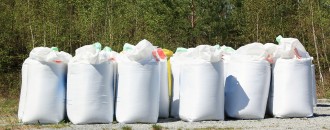
Fertiliser companies to get subsidy after retail sale via PoS
The Dollar Business Bureau Inching closer to launch the direct benefit of transfer (DBT) scheme in the fertiliser sector, the Government has taken a decision that from June onwards fertiliser subsidies will be paid to the manufacturers post-sale of soil nutrients through point of sale (PoS) machines at the retail stage. The step will help in reducing the bill for fertiliser subsidy of the government by around 20% through plugging leakages and diversion. The Central government has provided more than Rs.70,000 crore as payment for subsidies in the current fiscal. Currently, the payment of subsidy is made to manufacturers after they provide the dispatch-from-plant or receipt -at-district. “From the kharif season this year, the subsidy will be transferred to the company the moment fertiliser gets sold via the point ...
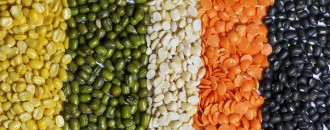
Govt. hikes MSP for pulses to boost production
The Dollar Business Bureau The government on Wednesday hiked the minimum support price (MSP) of pulses by up to Rs. 425 per quintal for the year 2016-17 to boost domestic production and check price rise.It has also announced a bonus on the cultivation of pulses and oilseeds, payable over and above the agreed MSP, in order to incentivise the cultivation of these items.The decision to raise MSP was taken after Commission for Agricultural Costs and Prices (CACP), which considers the production cost, domestic and international prices, overall demand and supply, inter-crop price parity, effect of the price policy on economy, and terms of trade between agricultural and non-agricultural sectors, came out with the MSP recommendation for kharif crops 2016-17. Other factors, ...
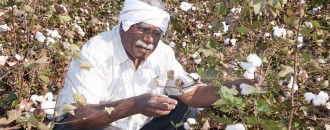
Telangana CM asks farmers not to grow cotton
The Dollar Business Bureau The Telangana CM K Chandrasekhara Rao has asked the farmers not to grow cotton this kharif season due to the decline of cotton prices globally. The State government also urged the farmers to sow an alternative crop as the cotton industry was suffering huge losses all around. Thanks to many non-governmental organizations and social campaigners, the Government has a clear picture with regard to the number of farmer suicides last year. Reports show that the number of farmers committing suicide was more among those who grew cotton. These farmers resorted to such extreme steps due to severe financial problems. Keeping these numbers in mind the TS government has decided to start a full length campaign to reduce the area under ...
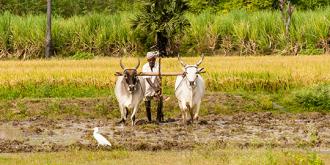
Minimum Support Prices for Kharif Crops for 2015-16 season get the nod
Source: PIB, Government of India The Cabinet Committee on Economic Affairs, chaired by the Prime Minister Narendra Modi, has given its approval for the Minimum Support Prices (MSPs) for Kharif Crops of 2015-16 Season. The decision is based on recommendations of Commission for Agricultural Costs and Prices (CACP) for the Price Policy for Kharif Crops for the Marketing Season 2015-16. CACP takes into account the cost of production, overall demand-supply, domestic and international prices, inter-crop price parity, terms of trade between agricultural and non-agricultural sectors, the likely effect of the Price Policy on the rest of economy, besides ensuring rational utilization of production resources like land and water, while recommending MSPs. The CACP being the expert body, its recommendations are generally ...


